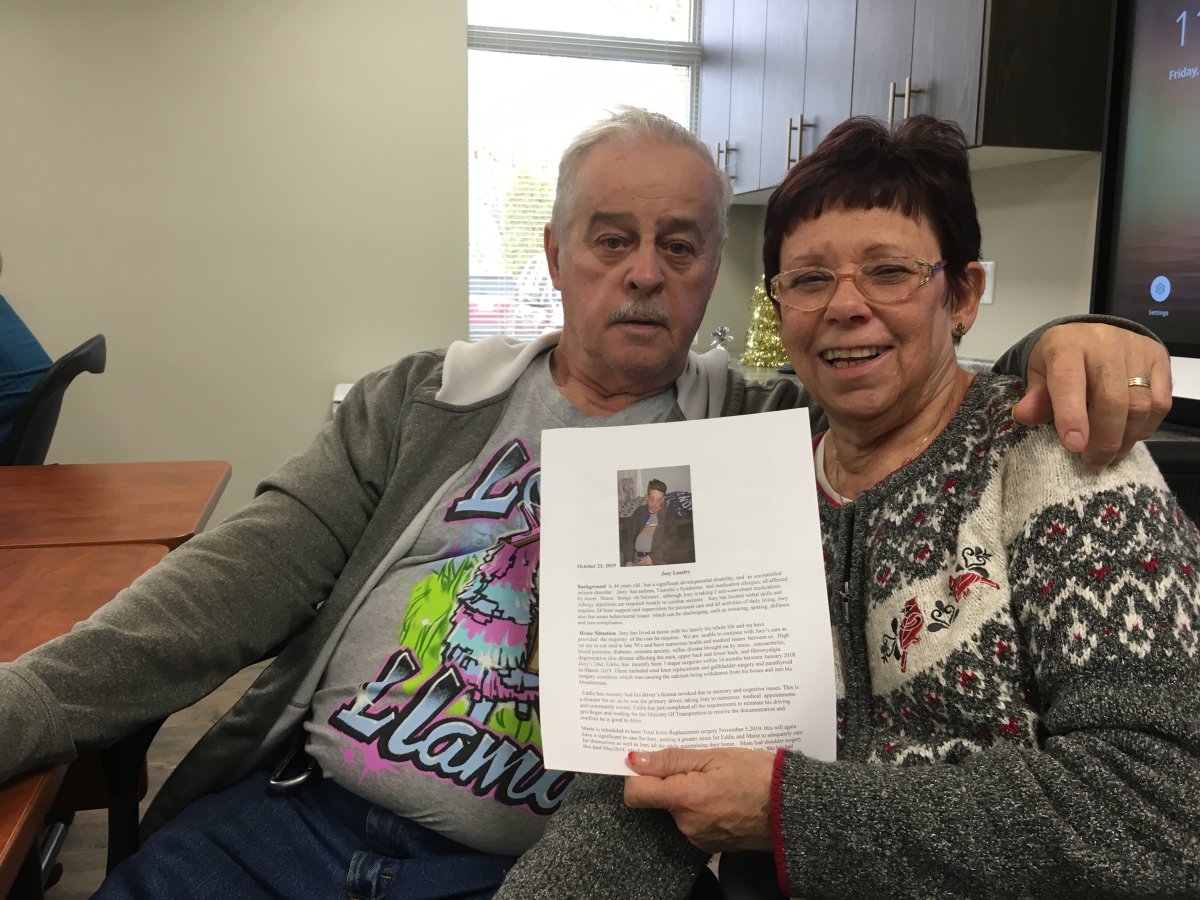London parents of adults with developmental disabilities are drawing attention to the significant shortage of assisted-living facilities.

There are currently 645 people in the London region on a waitlist for supportive housing.
Joey Landry, 44, has epilepsy, developmental delays and Tourette’s syndrome, and like hundreds of others, he has been waiting years to move out of his parents’ home into assisted living.
“We want this to happen for him now, not when it’s too late for us to do something,” Joey’s mother Marie said. “We can help him to adjust and help the people with him to learn about Joey and for them to adjust for Joey.
Joey’s mother and father, Edward, first put him on the waitlist more than 20 years ago knowing they may have to wait a while.

Now in their 70s and facing their own medical challenges, including cancer, knee surgery and memory issues, the need to get him settled on his own is more crucial now than ever before.
Marie and Edward are part of a group of parents called Family Directed Alternative Support Services, a London group focused on improving the current and future quality of life for their adolescent and adult dependent children with disabilities.
The group held a news conference today, alongside London North Centre New Democrat MPP Terence Kernaghan to call on the province to address the lack of supportive housing options.
“We have moved away from the institutional model which everyone believes is a good move, however governments have not created the spaces in the community (for these people), so people languish on these waitlists indefinitely,” Kernaghan said.
Although he said some people have gotten off of the waitlist, he believes that was because someone else passed away.
“It’s a humanitarian crisis — there are 645 people waiting in the London region for residential supports, and the government has turned a blind eye to their crisis.”
“Demand for developmental services has grown considerably over the last decade and a half,” Christine Wood, a spokesperson for the Minister of Children, Community and Social Services, said in a statement to 980 CFPL. “A complete lack of action by the previous government to address these mounting pressures has put those seeking care for a family member with a disability in a very difficult position.
“Our government has launched a comprehensive consultation with the developmental services sector, aimed at building an efficient and sustainable system for those who need supports and that $1.62 billion of that funding is dedicated to residential services.”
Wood said each case is reviewed on an individual basis and those who are determined to be most in need are prioritized for available resources.
The decades’ long wait times have created a situation where parents say they would rather their child pass away before they do, then be left behind in the current system.
“There is no one else to care for him, and if something were to happen to one of us or both of us, we don’t know how we would be able to cope,” Marie said.
“It’s almost grim but an easier thought to think he might go before us than for us to have to go before him. It’s the hardest thing a parent can think of, but what else do you do.”
Marie is not alone in that thought.

“I sometimes think I would rather she pass away before me because then I know she is at peace. It’s an awful thing to say, but we want the best for our kids, it means everything to us,” said Susan Bhatt.
Susan is a single mother, and her daughter Milani Bhatt, 32, has both down syndrome and is on the autism spectrum. She is non-verbal and needs help with everyday tasks, including going to the washroom.
“She is totally vulnerable to neglect and abuse; she would not even know if someone was abusing her.”
Susan’s husband died in a car accident when Milani was six weeks old, and since then, she has had to raise her daughter all on her own.
While taking care of her daughter around the clock, she also works part-time, trying to ensure she has enough of a pension to be able to retire one day.
Milani has been on the waitlist for 21 years, and they are no closer to getting help.
“There are hardly any new homes being built, and I really believe it would probably take something happening to me to get her a spot.”








Comments